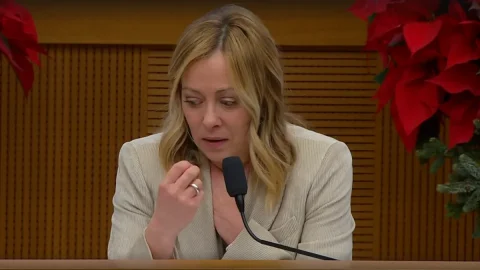The recession is a sad reality. However, little consolation, the saying "mal common half joy" applies. Unlike what it was worth even a month ago, he points out Mario Draghi, the problem has affected everyone in the same way, both Southern Europe and Germany, which discovers that it is not immune from the contagion. Even if the differential between the Btp and the Bund grows, Berlin has no reason to smile: the collapse in demand from customers for Made in Germany, including Audi and Mercedes, is causing the profitability of the highly efficient German locomotive to plummet which can no longer count on an outlet in China.
This is the framework in which the three-man maneuver is inserted, which today it involved three major central banks of the global economy even if, explains the president of the ECB, "there was no concertation, just a normal exchange of views". But it is also a sign of the abyss into which the global economy risks plunging if there is not a breakthrough, in the methods and contents, of the therapies capable of triggering a virtuous cycle again. Not only on the part of central banks, which are responsible for emergency measures, but also on the part of governments and institutions, starting from old Europe, the Gdansk from which the second global recession, after that of 2009, risks starting triggered by the collapse of Lehman Brothers.
First of all, the ECB cut the discount rate by a quarter of a point. Expected measure indeed in some ways insufficient in the eyes of the "doves" who hoped for at least half a point. But the directorate of the ECB accompanied the decision with an even stronger initiative: the zeroing of interest for deposits with the ECB, up to now equal to 0,25%. In this way, banks and companies (especially German) that have abundant liquidity but prefer parking in the coffers of Frankfurt, will (hopefully) be stimulated to put capital back into circulation by restarting a virtuous cycle of investments. Will it be enough? Perhaps. But the situation, i.e. abundant liquidity, stagnating investments in the face of declining consumer demand in line with the collapse of confidence, closely resembles the "Aocalypse" of the liquidity trap described by John Maynard Keynes. And the therapies implemented by the EU's powerful, above all Germany, recall even more closely the events which in 1932 led to the collapse of the Credit Anstalt in Vienna, the start date of the toughest phase of the European recession. Even the fall of the gods, from Bob Diamond of Barclays to Rodrigo Rato of Bankia, without forgetting the precedent of JP Morgan, closely resembles the emergencies of times gone by.
Mario Draghi, despite the Bundesbank guerrilla warfare, is as aware of the situation as his colleagues. At the same time as the ECB, the Bank of England implemented a new move of monetary expansion. Indeed, the British central bank left the reference rate unchanged at 0,5%, but increased the asset purchase program (mainly bonds) by 50 billion pounds, from 325 to 375 billion.
Finally, the People Bank of Chinaon which it depends Beijing's monetary policy , lowered its reference rates for the second time in the space of a month. This was announced by the Central Bank itself, which reduced the rate on loans by 0,31 percentage points and that on deposits by 0,25 points.
The concert is missing, for now, the Federal Reserve, but analysts assume that the moves of other governors will offer a Ben Bernanke the opportunity to overcome the resistance of the hawks and to move against the risk of a new relapse.
In short, even if Draghi did not want to underline the joint action of the central banks, it emerges without any doubt that the risk of recession, the antechamber of a global deflation, scares everyone. Markets included.
It is no coincidence that the move, albeit obvious, of the drop in interest rates has had as an immediate reaction, the sharp drop in price lists. After the decisions of Draghi, Mervin King and their Chinese colleague, the financial markets have realized that the situation is so serious as to overshadow any other consideration. As already happened in 2008, at the time of the collapse of Lehman Brothers, the global economy runs the risk of sinking into a negative spiral which must be averted as soon as possible. Unfortunately, from this point of view, the situation looks even worse than that in 2008. At the time, in fact, the USA reacted to the crisis with a change in economic policy with a robust injection of capital in accordance with the principle that, when demand from private individuals and business investments fall, the State must inject into the market capital needed to avoid collapse.
It is not the attitude, at least the official one, of the European Union, now judged as the "infector" who is jeopardizing not only the health of the community of 27, including Germany itself, but also the growth of Emerging.
Sure, you can see the glass as half full. As Mario Monti declared in Parliament minutes after Draghi's press conference, the conclusions of the European summit are an example of "political dynamism". The outcome of the Brussels meeting, adds Draghi from Frankfurt, “places the Union on more solid foundations' and gives Europe 'a road map to achieve a real economic and monetary union'. All true. But Draghi himself took note that, before intervening on the hotbeds of crisis, Italy and Spain, the ECB will have to wait for the new rules on the use of state-saving funds and the EMS, necessary to avoid the collapse of Spain, grappling with a spread that is approaching 600 bp. Difficult to put out the fire with buckets and hydrants if the firefighting planes remain in the hangars.





